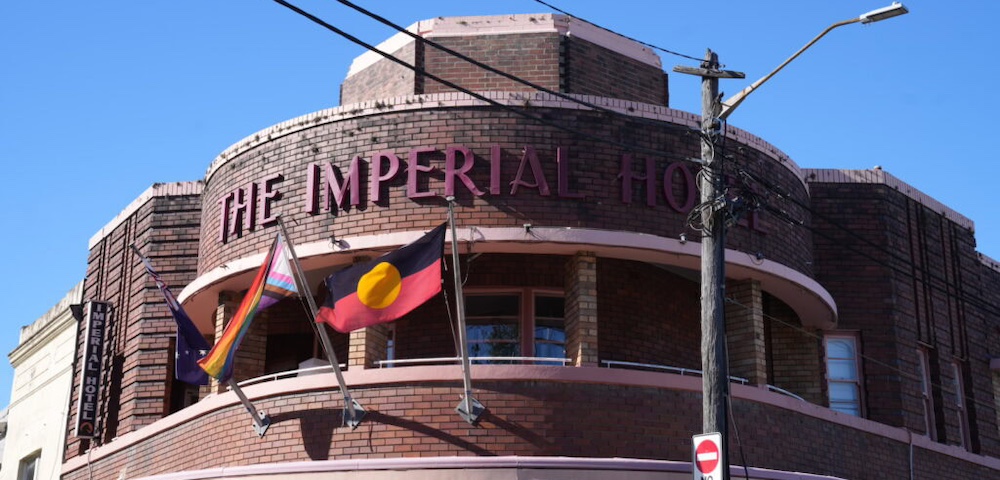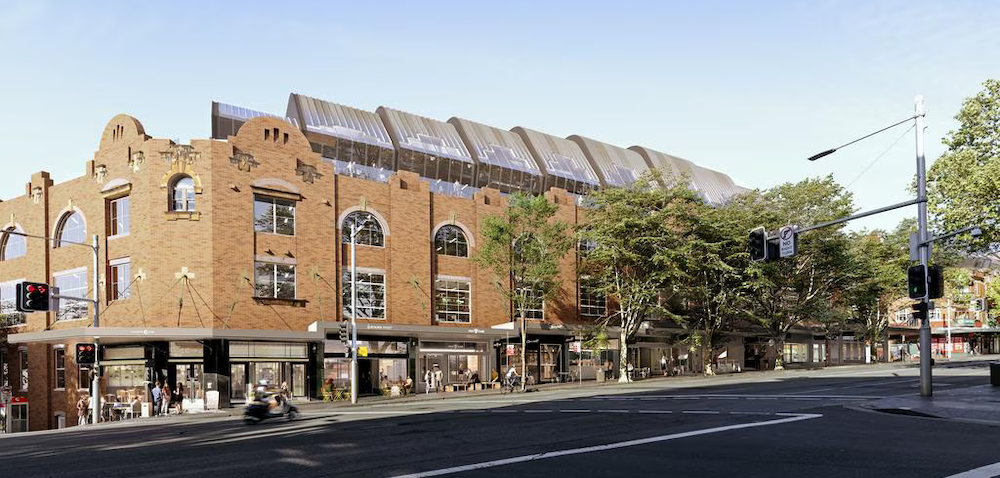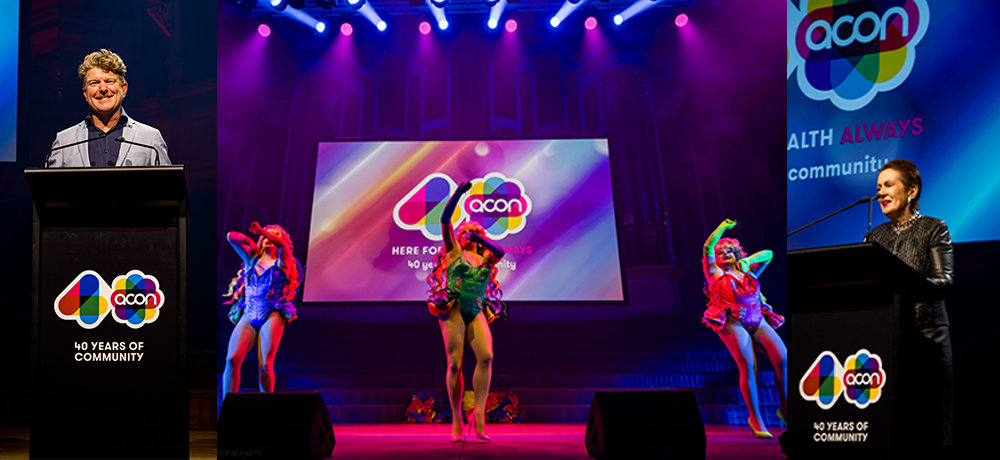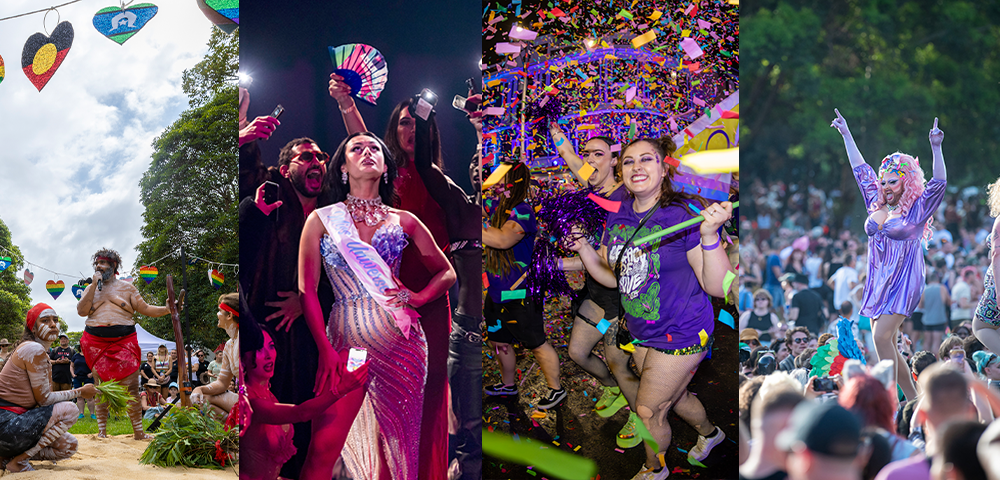
Games loss affects Montreal
The loss incurred by the Sydney 2002 Gay Games has led -“ in part -“ to a stand-off between the Federation of Gay Games and the organisers of the 2006 Games in Montr? about the size of the event.
At the Federation’s meeting in Vancouver last year, the Federation voted to maintain -“ rather than increase -“ the Games licence fee. However, contracts between the Feder-ation and the 2006 organisers remain unsigned.
In a statement released to Sydney Star Observer this week, Federation co-president Roberto Mantaci said that the Federation wanted to ensure that the Games did not leave their organising bodies with deficits.
[It] is currently our highest priority in establishing a relationship with Montr? 2006, he said.
Mantaci said the Federation was urging Montr? to evaluate very prudently and conservatively the projected income of the event and to create an initial plan based only on resources that are already guaranteed (e.g. the government financial support Montr? has already received) or are estimated using the most prudent projections possible.
But in a personal letter to the Star (reprinted in full on page 23), Federation director Charlie Carson said that Montr? was repeating a temptation to excess in its planned staging.
Thirty sports, a locally-focused band and chorus event, and some kind of opening and closing ceremony should be plenty, thank you, without trying to showcase every other social/political/ cultural discipline in the LGBT canon, Carson wrote. While the Federation has had a challenge convincing Montr? that grandiosity was not the reason they were selected, thankfully members of Sydney 2002 have been blunt enough to tell Montr? they’re crazy.
Mantaci also responded to last week’s reporting in the Star about the Sydney 2002 financial loss.
While there had been concern at the Federation level about Sydney 2002 budgets prepared in the first few months of last year, Mantaci said this concern was allayed after Sydney 2002 prepared the 21 May budget -“ which posited a $23,000 profit for the event.
From that moment and until the post-Games results were disclosed, the Federation had no reason to disagree with the Sydney 2002 board’s confidence that they were heading toward at least a break-even result, Mantaci said. The Federation’s public position in the months leading to the opening ceremony was consistent with that.
The Federation does not believe that Sydney 2002 would have moved along the plan laid down in the 21 May budget if they were not genuinely convinced of their chances of success.
Mantaci confirmed that there had been discussions last year between the Federation and Sydney 2002 about their heavy reliance on dance parties as a fundraising strategy.
One thing we stressed was asking them not to lose sight of the fact that athletes in particular were unlikely to attend parties in the early part of the week. But in a city like Sydney, with a prior long-term success of Mardi Gras-sponsored parties and other year-round dance events, the plan to generate party revenue during the week of an event like the Gay Games seemed like a risk worth taking, Mantaci replied.
The fact is that Sydney 2002’s reliance on dance party ticket sales was not misplaced, even if it turned out to be excessive, he said. Sydney 2002 raised AUD$3.4 million from dance party ticket sales, making this item a very significant segment of their overall income sources. The Federation has been told that this amount far exceeds the combined Mardi Gras/Harbour Party sales in any Mardi Gras week ever. So, as a matter of principle, Sydney 2002 had it right. However, their judgment about it turned out to be wrong. Although they set a record for party revenue for any one week in Sydney history, they were overly optimistic about how high that record could go.
SYDNEY 2002: A FEDERATION PERSPECTIVE
IN RESPONSE TO THE STAR’S ARTICLES LAST WEEK ON THE GAY GAMES, FEDERATION BOARD MEMBER CHARLIE CARSON GIVES HIS PERSONAL READING OF EVENTS LEADING UP TO THE GAMES’ PRESENT PREDICAMENT.
While I have no quibble with much of the reporting regarding the difficult, ongoing administration process for the Sydney 2002 Gay Games, I want to comment on several points in the articles of 13 March.
The Gay Games timeline begins in February 2002 and provides readers with a limited perspective.
For example, serious organising efforts for a Sydney Gay Games go back at least to 1993 when members of the community developed a bid for the 1998 Gay Games. There was considerable interest by SOCOG to use a 1998 Gay Games as one of the Olympic warm-up events. Dawn Fraser even travelled to Washington DC as part of the Sydney 1998 bid team.
When the 1998 Gay Games was awarded to Amsterdam instead, all pre-Olympic tie-in benefits were lost. Still, in the can-do atmosphere surrounding Sydney at the time, it is not surprising that Sydney would continue to bid for the Gay Games.
It is also not surprising that Sydney Gay & Lesbian Mardi Gras officers who had supported a Gay Games bid for 1998 might think that bidding for 2002 was bad timing, assuming that the Federation of Gay Games board would likely go back to North America before sending the Games to another part of the world. (Ask members of the 2002 Dallas, Long Beach/Los Angeles, Montr? and Toronto bid committees, who optimistically assumed the same thing.)
During the final bidding in late 1997, Sydney 2002 enjoyed some major advantages: an existing relationship with the Federation due to its previous bid; a Federation eager to reach new areas of the world; a Mardi Gras at its peak, indicating similar profitable event income during a Gay Games; and general glowing international press about Australia during the lead-up to the Olympics.
But, in fact, we learned that trying to organise the Gay Games in an Olympic atmosphere proved a drawback rather than a benefit. Sydney 2002 repeatedly encountered potential sponsors who could not think, much less budget, past the year 2000. Sydney 2002 also found it frustrating that government departments heavily invested in the Olympics and other sports activities would not make a minimal cash commitment to a proven economy booster, the Gay Games.
Time and again, and Sydney repeated the pattern, the Gay Games has benefited local governments and businesses by about AUD$100 million. That alone justifies belief that the Gay Games brand is strong; continued participant demand and interest by city groups in hosting the Games strengthens the case. And an economic boost like that certainly should mean that not only was the 2002 licence fee reasonable, it was, arguably, low.
Now, whether the brand is being leveraged effectively, as David Mills puts it, is another matter. It is no secret from the Federation’s public board meetings that I am among a number of directors who believe the Gay Games has lost too much sports focus and become almost indistinguishable from a general gay pride festival. That trend started at Gay Games II and was cemented in 1990 when Vancouver pledged to make the cultural program the equal of sports. New York’s Gay Games was a mere part of the enormous Stonewall 25 celebration, and the Amsterdam organisers concentrated more on friendship than athletics.
In this background, a pattern of ever-larger ceremonies and cultural festivals has taken hold. It didn’t surprise me that Sydney 2002 kept aiming high, hoping against hope that ticket sales would cover costs. The opening ceremony was indeed fabulous, but I will never forget the comment of a bright, swimmer friend (and multi-Gay Games veteran) from Los Angeles the next morning riding to the pool: I thought it was great, but I looked down on the field and all I saw were dollar signs.
Who’s responsible for making changes? The Federation, by requiring bidding cities to tightly budget for a minimum event, not some huge, idyllic best ever. Thirty sports, a locally-focused band and chorus event, and some kind of opening and closing ceremony should be plenty, thank you, without trying to showcase every other social/political/cultural discipline in the LGBT canon.
The temptation to excess is being repeated by Montr?, who bid to combine the 2006 Gay Games with the annual Divers/Cit?ride festival, and whose plans have mentioned as many as 23,500 athletes and 5,000 cultural participants (it’s all on their website, www.montreal2006.com). While the Federation has had a challenge convincing Montr? that grandiosity was not the reason they were selected, thankfully members of Sydney 2002 have been blunt enough to tell Montr? they’re crazy.
In fact, the Federation has yet to sign a contract with Montr?, telling them it is time to get back to basics.
Whether the Federation as a body will have the guts to go elsewhere or, in fact, cancel the Games for 2006 remains to be seen should it appear Montr? will not take such a downscaled Gay Games seriously.
Meanwhile, the Star’s readers who’ve been grinding axes in the online Bulletin Board at Bev Lange, Peter Bailey, Richard Cobden, and other Sydney residents connected with the Gay Games do nothing but tarnish the entire city of Sydney and turn the mirror back on their anonymous selves. Even with an LGBT community as large as in my hometown of New York, there is only so much talent to go around and some of the same selfless people repeatedly step forward or are asked to pitch in when difficulties arise.
Almost every civic-minded out person in Sydney has passed through the Mardi Gras doors at some point. When Sydney 2002 needed fresh blood only a year before the Gay Games, it only made sense to tap people from the period when Mardi Gras was at its peak, such as Bev. While I personally may disagree with how some Sydney 2002 resources were eventually allocated, the fact is the Gay Games did happen, and they happened despite 9/11, Bali, and the collapse of the Satellite Group and old Mardi Gras.
Mills sums up the Star Observer’s entire Gay Games coverage by saying the chance of an Australian city embarking on a project like hosting the Gay Games ever again seems remote in the extreme. That statement doesn’t surprise me either, because the Star has printed an enormous number of articles about logistical challenges to Sydney 2002 but relatively nothing about where this event has habitually had its greatest societal impact -“ on the playing fields and in the concert halls.
Perhaps the print edition has been different, but there were no regular online articles profiling local or foreign athletes during the years before the Games. During the Games itself, I saw no articles chatting with straight officials and employees at the venues to see whether their Gay Games experience was different from their preconceptions. For example, the 1994 aquatic centre staff was leery in the extreme, but afterwards -“ even after the Pink Flamingo -“ repeatedly, publicly said they would host again any time.
How many participants did you seek out who were on their first trip to Australia to ask their impressions and whether they would come back? How many participants, particularly from the Asia/Pacific region, did you interview to gauge the impact their competing at a Gay Games would have when they returned home? In short, just how deep did the Star dig investigating whether the event was, on balance, worth it?
I suspect a lot of positive viewpoints are still floating around in Sydney and elsewhere in the world that would prove newsworthy to future Australian governments who might be approached to support a Gay Games in, say, 2022. Certainly the Star has thrown down the gauntlet to Melbourne. We’ll see if anyone picks it up.
Finally, I must add the disclaimer that the viewpoints are mine and do not necessarily reflect the majority opinion of the Federation of Gay Games board.
-” Charlie Carson, individual director, Federation of Gay Games









